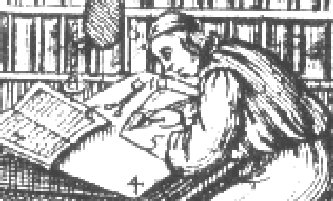| <quotation> |
specifies editorial practice adopted with respect to quotation
marks in the original. |
| Attributes |
(In addition to global attributes
and those inherited from declarable)
| marks
|
indicates whether or not quotation marks have been retained as
content within the text. |
|
Datatype: ( none | some | all ) |
|
Legal values are:
| none |
no quotation marks have been retained |
| some |
some quotation marks have been retained |
| all |
all quotation marks have been retained |
|
|
Default: all |
| form |
specifies how quotation marks are indicated within the
text. |
|
Datatype: (data | rend | std | nonstd | unknown) |
|
Legal values are:
| data |
quotation marks are retained as data.
|
| rend |
the rendition attribute is
consistently used to indicate the form of
quotation marks.
|
| std |
use of quotation marks has been standardized.
|
| nonstd |
quotation marks are represented inconsistently.
|
| unknown |
use of quotation marks is unknown.
|
|
|
Default: unknown |
|
| Example |
<quotation marks="none" form="rend">
<p>No quote marks have been retained. Instead, the rendition
attribute on the Q element is used to specify what kinds of
quote mark was used, according to the following list:
<list type="gloss">
<label>dq</label>
<item>double quotes open and close</item>
<label>sq</label>
<item>single quotes open and close</item>
<label>dash</label>
<item>long dash open</item>
<label>dg</label>
<item>double guillemets open and close</item>
</list></p>
</quotation>x
|
| Example |
<quotation marks="all" form="std">
<p>All quotation marks are retained in the text and are
represented by standard entity references
</p></quotation>
|
| Module |
Declared in file teihdr2; Core tag sets: enabled when any TEI base is enabled |
| Class |
declarable
|
| May contain |
p |
| May occur within |
editorialDecl |
| Declaration |
<!ELEMENT quotation %om.RO; (p+)>
<!ATTLIST quotation
%a.global;
%a.declarable;
marks ( none | some | all ) "all"
form (data | rend | std | nonstd | unknown) "unknown">
|
| See further |
5.3.3 The Editorial Practices Declaration; 23.3.2 Declarable Elements
|
